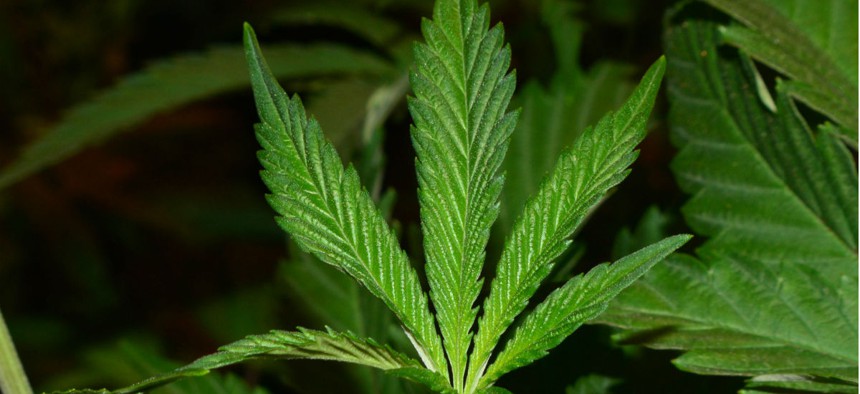
ItsAngela / Shutterstock.com
Uncle Sam to Feds: No, You Still Can’t Smoke Pot
Federal employees still have to abide by federal law when it comes to weed, despite relaxed restrictions in several states and localities.
The Office of Personnel Management has reminded federal employees that using weed is still verboten, despite fewer restrictions on marijuana use in several states and cities across the country.
“Federal law on marijuana remains unchanged,” said OPM Director Katherine Archuleta in a May 26 memorandum to agency heads. “Marijuana is categorized as a controlled substance under Schedule I of the Controlled Substance Act. Thus knowing or intentional marijuana possession is illegal, even if an individual has no intent to manufacture, distribute or dispense marijuana.”
Archuleta directed agency leaders to inform their workforce that just because several states have relaxed their attitudes on cannabis, it doesn’t mean Uncle Sam is following suit. Any changes in states or localities, “do not alter federal law, existing suitability criteria, or executive branch policies regarding marijuana,” she wrote.
James Clapper, director of national intelligence, sent a similar memorandum in October 2014 reminding agencies that they “continue to be prohibited from granting or renewing a security clearance to an unlawful user of a controlled substance, which includes marijuana.”
Executive Order 12564 on the drug-free federal workplace requires federal employees to refrain from the use of illegal drugs, and states that the use of such drugs, “whether on duty or off duty, is contrary to the efficiency of the service.” Also, people “who use illegal drugs are not suitable for federal employment,” the Reagan-era order says. That applies to medicinal, as well, as recreational use of marijuana.
Practically speaking, it will be difficult for the government to actually enforce the prohibition, since many agencies do not drug-test employees. If an agency changes its drug testing policy, it must provide employees with 60 days’ notice. If an employee fails a drug test, then the agency can take disciplinary action, including firing, but offering counseling or other rehabilitation services is more likely. “The executive order emphasizes, however, that discipline is not required for employees who voluntarily seek counseling or rehabilitation and thereafter refrain from using illegal drugs,” Archuleta pointed out in her memo.
Four states (Alaska, Colorado, Oregon and Washington) and the District of Columbia have legalized the recreational use of marijuana in some form. Several other states have decriminalized the use of marijuana and/or approved toking for medical reasons. Decriminalization means that the state no longer imposes jail time for possessing small amounts of marijuana but rather treats the offense as a civil infraction.
The D.C. law, however, is still under congressional review, though it took effect in February. Under the D.C. law, the possession of small amounts (two ounces or less) of pot is legal; sale and distribution remain illegal. City officials came up with the slogan “home grow, home use” to remind people they can grow it and smoke it, but they can’t sell it, or toke it in public.
The Senate Appropriations Committee last week approved a major spending bill that includes a bipartisan amendment allowing Veterans Affairs Department physicians to recommend medical marijuana in states where it is legal to patients for physical pain as well as for symptoms associated with post-traumatic stress.
(Image via ItsAngela / Shutterstock.com)







